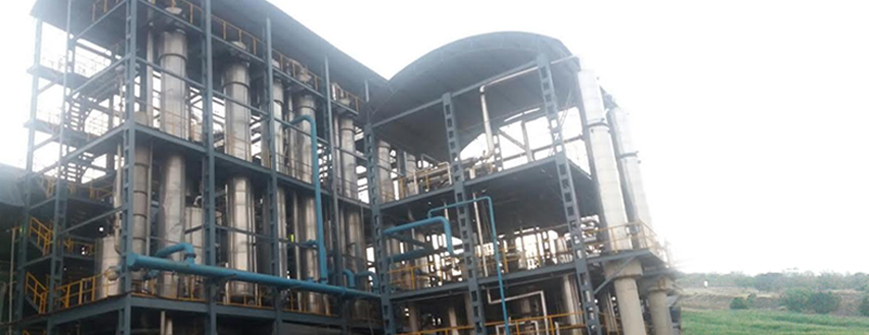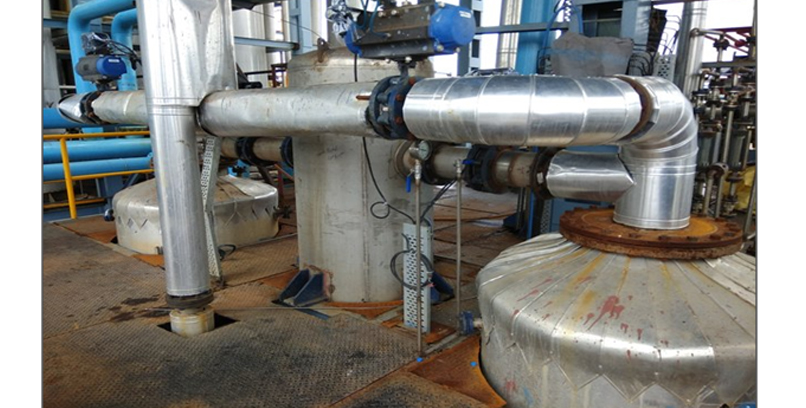Home > Business Line > Ethanol

The Continuous OR/AND Fed Batch fermentation proposed is the latest and proven technology as compared to the old batch fermentation technology. Continuous Fed Batch fermentation has been developed to further improve the operating parameters of the plant to give high fermentation efficiency, higher alcohol percent, trouble free continuous operation and higher consistency of the performance parameters over longer period even if quality of Molasses is worst. Most modern ethanol production plants adopt this Fed Batch/continuous fermentation technology.
The vacuum distillation has many advantages over conventional distillation atmospheric distillation plants like lower energy requirement, very good quality alcohol and less scaling of the distillation columns due to low temperatures. The vacuum distillation produces alcohol of international quality standards and there is a lot of demand of alcohol from the vacuum distillation process. The ENA produced from this latest technology will meet most of the international quality standards for US, British and Japanese standards.
Both fermentation and distillation are operated with PLC controls system. This will help in maintaining the parameters consistent and without any fluctuations and it maintains quality of ENA & its output.
Molecular sieve technology works on the principle of pressure swing adsorption. Here water is removed by adsorbing on surface of `Molecular Sieves’ and then cyclically removing it under different conditions (steaming).
Molecular sieves are nothing but synthetic Zeolite typically 3A Zeolite. The crystalline structure of Zeolite is complex and gives this material the ability to adsorb or reject material based on molecular sizes. Water molecule can enter the sieve and be adsorbed, but larger alcohol molecule will not be retained and will go through the bed. There are 2beds in parallel.
Low steam consumption and low power consumption as compared to azeotropicdistillation. In case of large capacity plants, the Molecular Sieve is the most optimum both in terms of initial investment and operating cost.
The total unit is operated with PLC computer controls system. This will help in maintaining the parameters consistent and without any fluctuations thus resulting in consistent product purity & capacity.
